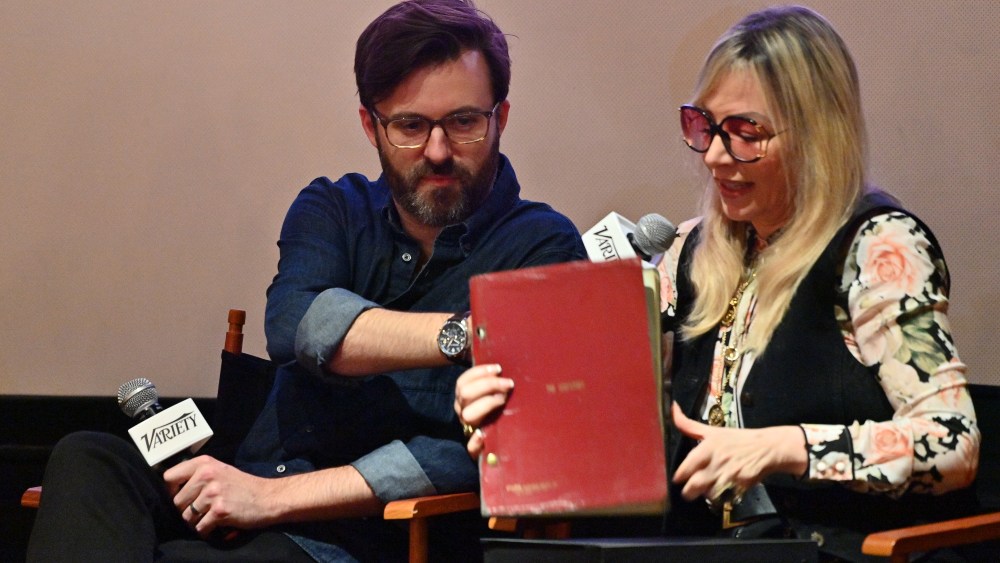Historian Alison Martino on the Film’s Lasting Impact
It’s not every day the public gets to see memorabilia from Francis Ford Coppola’s “The Godfather.”
Los Angeles historian Alison Martino has a rare original script from the film that belonged to her father, Al Martino, better known to the world as singer Johnny Fontane in the classic film.
Martino was joined by “Waltzing With Brando” cinematographer Garret O’Brien at the Variety 120 Screening Series presented by Barco, a summer-long program hosted by Jazz Tangcay that celebrates Variety‘s 120th anniversary by showing iconic films such as “All About Eve” and “It’s a Wonderful Life.”
Martino explained how “The Godfather” was the first film she ever saw: “I wanted to see it again and again.” She also shared how she was able to ask her father about the making of the film and being involved in the production. “They had no idea it would be anything like this,” she said. “They didn’t see a cut till the end. So how would you know?”
“The Godfather” is considered one of the greatest films of all time and was a sensation when it debuted on March 24, 1972, setting box office records, revitalizing the career of Marlon Brando and launching the likes of Al Pacino, Robert Duvall and James Caan.
Martino explained how Variety’s own Peter Bart had a key role in developing and producing the film. “Peter found the book.” She explained that as they started turning it into a script, singers, including Frankie Avalon, wanted parts. “Dad was the first one cast,” Martino said. After sharing a story about Brando and her father, she pulled out the script, much to the awe of the audience.
O’Brien found the film later in life, as a 16-year-old: “I remember watching it for the first time, and I had no idea what cinematography even was. I didn’t know someone was in charge of that. I thought this film was dark, but it’s also really interesting. The colors were unique for it being that way.”
He was hooked. And like many, the film has become a rite of passage for cinematographers. “You have to understand what shadows and light and dark mean, and what framing can mean and being in the power of stillness.”
Speaking to the film’s legacy, Martino remarked on why the film was groundbreaking. “I just don’t think anyone had ever seen a crime movie about a family. It’s really a family.”
On the performances, the two discussed Pacino’s transformation into Michael Corleone. By the end of the film, he has become a ruthless crime boss. Martino explained, “When he comes out of the bathroom, instead he sits down, and that tension. We also love the hospital scene where he comes in and says, ‘You gotta move my father. They’re coming to kill him.’ He’s transitioning to a different person. He’s not the little college kid anymore.”
O’Brien added, “Al Pacino is also just mesmerizing in this film. I think a lot of people don’t think about him like that anymore, and they go back and visit this one, and go, ‘He’s all full of subtlety.’”
Martino also reflected on the scene with her father singing in the film’s big wedding scene. “This actual scene, where he’s singing, is special when the girls are crying. My dad had a couple of friends in that scene, so I noticed some friends I hadn’t seen in a while. It was like everybody just kind of came together and had fun. Nobody had any idea that this would be what it was going to be.”
Watch the video above.

